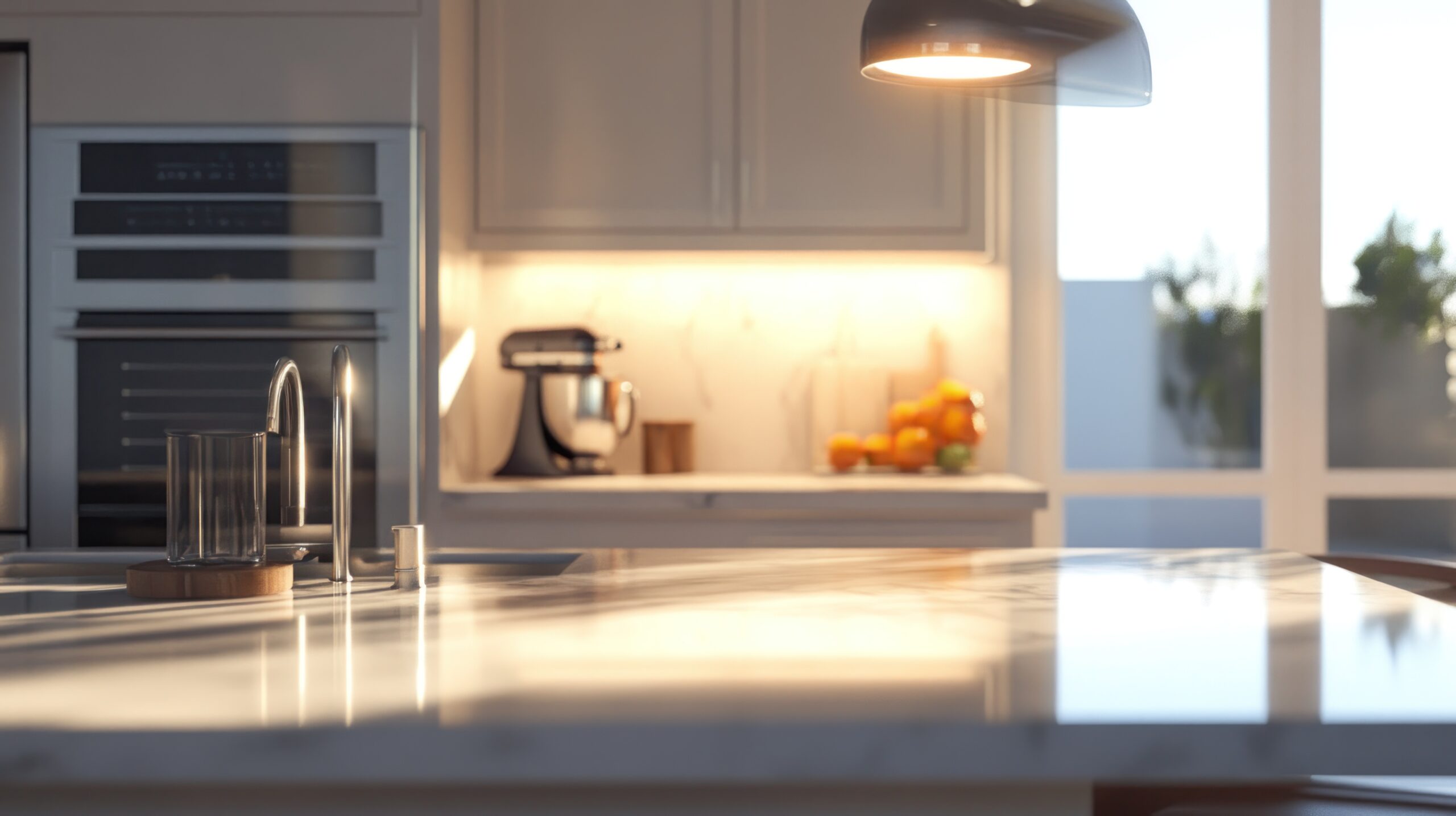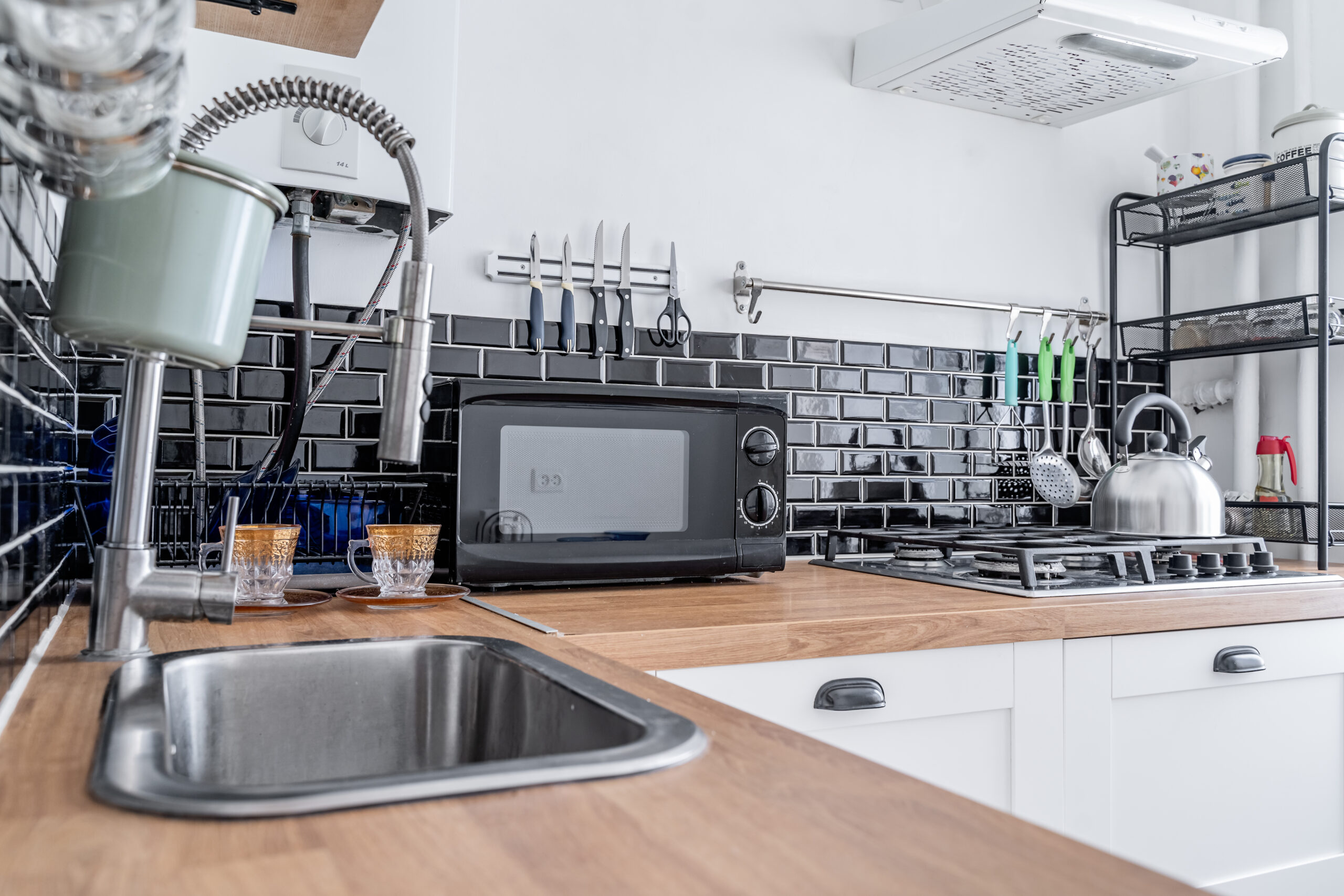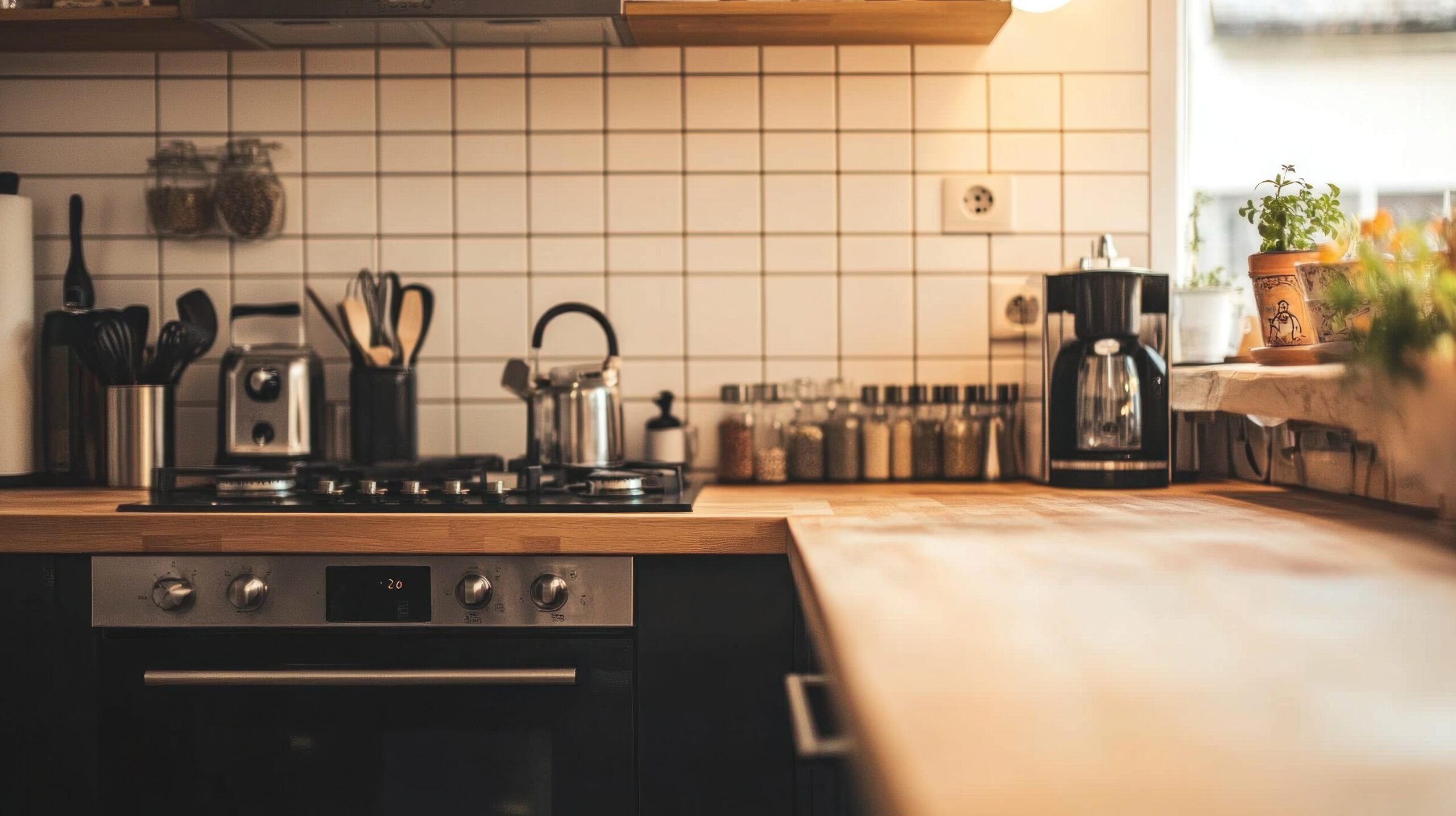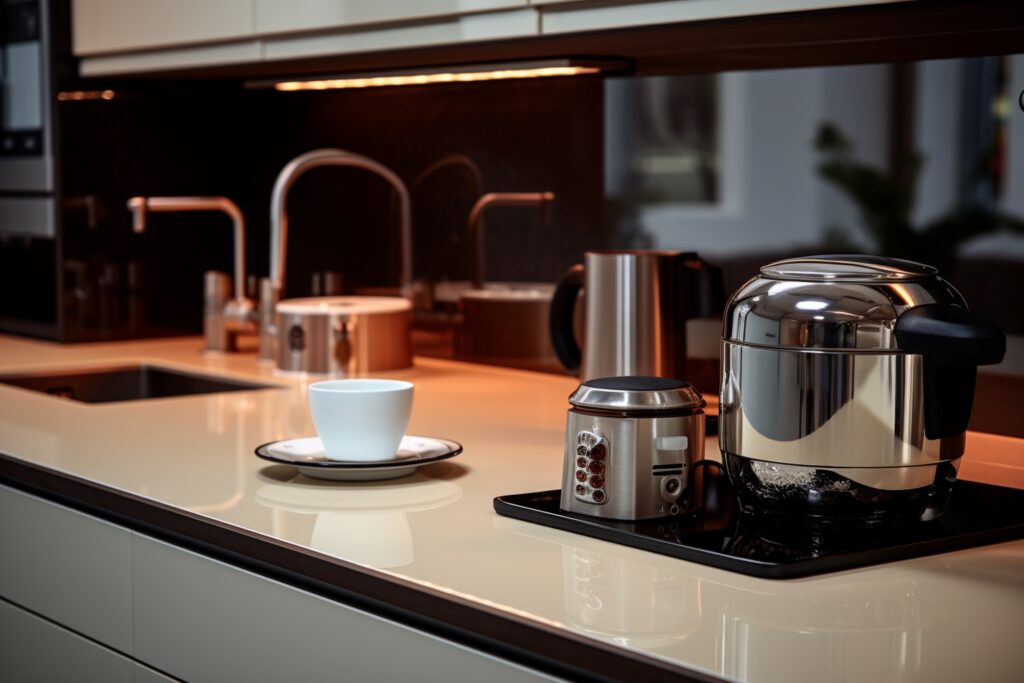Replacing kitchen appliances for the home kitchen can be done if home owners start to notice some jarring aspects within their kitchen space. Here are 5 important determining factors when it comes to replacing appliances.
Replacing Kitchen Appliances #1: Items That Are Poorly Performing

If your kitchen appliances are performing poorly, that may be a sure sign it is high time to replace them. Devices gradually lose their effectiveness after some time and may bring inconveniences or higher costs in the future. For example, an unevenly cooling fridge can cause food to spoil which costs money and endangers food safety. On the other hand, ovens heat unevenly playing a vital role in the cooking results of your prepared meals. They might turn meal preparation into something unpleasant and unreliable.
Other examples of poor performance is when there are dishwashers that leave dishes unclean after the running of a full cycle or require pre-washing every single time. Added hassle in redoing tasks or manually compensating for an appliance's shortcomings can quickly become time-consuming. Often, worn-out internal components, sensors and seals lead to inefficiency or complete appliance failure.
@ampquartz Yana sampai nak menangis tengok dapur rumah baru akak dia. Korang macam mana? Yana ke akak dia? Kami rasa akak dia 😊😊😊 𝐂𝐨𝐧𝐭𝐚𝐜𝐭 𝐮𝐬 𝐟𝐨𝐫 𝐦𝐨𝐫𝐞 𝐝𝐞𝐭𝐚𝐢𝐥𝐬 𝐨𝐤!📞 +6017 732 0149 (Jasmine) +6010 707 7815 (Lekha) +6010 719 7191 (Hema) https://go.wa.link/ampquartz 📍𝐕𝐢𝐬𝐢𝐭 𝐨𝐮𝐫 𝐬𝐡𝐨𝐰𝐫𝐨𝐨𝐦! Address: https://waze.com/ul/hw23bfh9s4 82, Jalan Gaya 1, Taman Gaya, Ulu Tiram, 81800 Johor Bahru 💻 𝐕𝐢𝐬𝐢𝐭 𝐨𝐮𝐫 𝐰𝐞𝐛𝐬𝐢𝐭𝐞! https://www.ampquartz.com/
♬ original sound – Ampquartz Kitchen Cabinets – AmpQuartz Cabinets
Poor performance from appliances may also translate to energy waste. In cases where your stove takes longer than its heat or your fridge operates more often in order to cool down — such inefficiency could make apparent increases in your utility bills. This extra energy consumption may not be too much in the initial stage but gradually it sums up to big amounts.
Poor performance can make for a far more stressful and less effective kitchen. Newer, more energy-efficient appliances will grant your kitchen more functionality and cost less in energy than older or faulty appliances. If you notice a persistent problem such as poor temperature control, poor cleaning or other failing parts, this would indicate that investment in a new appliance is more practical and cost-effective than continued repairs or dealing with poor performance.
Replacing Kitchen Appliances #2: Notable Safety Concerns

The most critical reasons for replacing kitchen appliances is for safety reasons. As appliances wear out, they become increasingly unsafe to use and can impose serious hazards on your home and family members. For example, insufficient or bad wiring or other electrical malfunction in an oven, microwave or refrigerator may cause sparks, short circuits or even an electrical fire.
Other signs that will show it is time for a change include burning smells, frequent tripping of the circuit breakers or sparks when plugging in your appliances before a minor issue can become hazardous. Gas-powered appliances whether cookers or ovens will also be sure to pose serious risks when they start leaking gas or malfunction in some other form with their ignition. Not only does a gas leak have harmful vapours to breathe but it can be very hazardous when it results in an explosion if left undetected. Whatever the case, if you smell gas aromas around your kitchen appliances, this is a very serious warning of when to immediately replace or get professional inspection.
Other major concerns about safety have to do with appliances malfunctioning and overheating or causing burns. This includes a microwave that becomes too hot on the outside or an oven overheating unevenly that may cause burns or other injuries. Similarly, refrigerators that do not close properly can kick start condensation then may cause water to pool on the floor. Old or malfunctioning appliances can also emit hazardous substances. Old refrigerators or air conditioners may leak fumes that are hazardous to breathe in or touch. On the other hand, rusted or corroded parts of any appliance compromise its functionality and safety — leading to accidents or contamination of food.
Replacing any appliance that has any of the described safety issues will be worth every penny of your investment in the long run. Safety before convenience can prevent serious accidents and your kitchen will still be a safe and reliable place each day.
Replacing Kitchen Appliances #3: Outdated And Does Not Support New Features

Not having modern facilities in kitchen appliances is a very reasonable cause for which one should look towards replacing them with new models since technology has developed rapid changes in these recent years. Although older appliances may work in basic capacity, they will surely lack modern conveniences, efficiency and advanced capabilities. To illustrate, modern refrigerators boast of touchscreen interfaces, cameras inside the unit showing what is stocked up and needs replacement through a phone application alongside many other capabilities. These features make meal planning and grocery shopping easier — saving time and reducing food waste.
Similarly, ovens these days sometimes have convection cooking, precise temperature control and self-cleaning functions that older units do not possess. These translate into faster cooking times, even heating and overall better meal results. Advanced cleaning technologies such as steam cleaning, pinpoint jets have been adapted into dishwashers and make for a deeper clean with minimal need for pre-rinsing beforehand. The other major upgrade would be in energy efficiency since most modern appliances are made to consume less water and electricity which would further contribute to environmental sustainability and lower utility bills.
@ampquartz ✨ Upgrade your cabinets with Pio accessories! ✨ From pull-out baskets to sleek drawer organizers, Pio’s got the perfect mix of style and function. Maximize your space and keep things tidy with these high-quality, modern designs. 🏡💫 Ready to transform your home? 🔥 AmpQuartz #kitchenaccessories kitchencabinet cabinetmaker cabinetjohor #cabinetaccessories kitcheninspriration kitchenimprovement kitchenrenovation Kitchendesign countertops
♬ original sound – AmpQuartz Cabinets – AmpQuartz Cabinets
In addition to functionality, most new appliances also offer safety features unavailable to the previous models. For instance, smart ovens and stoves that can be pre-set to turn off after a while or to be controlled from a distance reduce the risk of an accident in which it can be left on. Induction cooktops have surfaces that are safer to cook on because it only heats up the cookware and not the area around it.
The aesthetics of modern kitchen appliances counts too. Sleek, stainless steel finishes are integrated into designs and offer a range of customisation options for a more cohesive and contemporary look in your kitchen. This simple move of upgrading appliances with modern features will add much satisfaction to the time spent in the kitchen and add quite a bit of value to your home.
Replacing Kitchen Appliances #4: Issues With Energy Efficiency

Probably the most straightforward evidence that you need to replace your kitchen appliance is when they inefficiently use energy. This is because most old appliances, particularly those over ten years old use a lot of energy compared to energy-efficient appliances. This is especially the case with large appliances such as refrigerators, ovens and dishwashers which are used quite often. If your utility bills have been increasing yet there is apparently no reason, then the possible culprit could be your kitchen appliances.
Energy efficiency, owing to technology, enables new appliances to use significantly less electricity and water while offering the same or even better performance — reducing household expenditure over time. For instance, refrigerators are designed to consume lesser energy compared to models produced 10 years ago and the newest dishwashers consume less water per cycle. Besides, a large portion of the new appliances come with Energy Star certificates which is a standard for indicating significant energy saving. When you stick with old, less-efficient appliances, you continue to spend more money on electricity and water — adding to higher carbon emissions that can affect the environment.
Another telltale sign that your appliance is getting energy-inefficient is if it takes longer than usual to perform something or it is not working like it used to. A refrigerator that does not remain cool or an oven that does a poor job of heating evenly is usually overcompensating by overworking — generally using more power for the same results. Energy-efficient appliances are seen as a much greener and more economically friendly option. If you notice consistent increases in energy consumption, it is probably time to upgrade your old kitchen appliances with more efficient models
Replacing Kitchen Appliances #5: Old Design That Does Not Suit Aesthetics

A sure sign that it is probably time you replace your appliances is when the design becomes lacklustre. While functionality is a major concern, the nature of your kitchen's look contributes much to making the area comfortable and coherent for living. If the appliances are decades old, their look clashes with modern design trends — making your kitchen look worn out even though the rest of the kitchen is freshly renovated. It also normally comes with an outdated design with a bulkier, boxy shape, fewer colour options and fewer features. Without question, these will certainly make the kitchen less sleek and modern.
Besides being outdated in their appearance, the older models might lack much of the technological advances that have been included in many new appliances today. Many new appliances are designed to blend into cabinetry — creating an integrated, minimalist look. They could also have touchscreen controls and Wi-Fi connectivity among many energy-saving features — further making them more attractive and have increased functionality. By contrast, outdated appliances typically have knobs and manual settings that can make them feel clunky and more difficult to use.
@ampquartz Having tough time to get your cooking mood? Naurr dont worry my hardworking fellas~ We've got you covered… From head to toes~ From RM7, 999 to your needs! 𝐂𝐨𝐧𝐭𝐚𝐜𝐭 𝐮𝐬! 📞 +6017 732 0149 (Jasmine) +6010 707 7815 (Lekha) +6010 719 7191 (Hema) https://go.wa.link/ampquartz 📍𝐕𝐢𝐬𝐢𝐭 𝐨𝐮𝐫 𝐬𝐡𝐨𝐰𝐫𝐨𝐨𝐦! Address: https://waze.com/ul/hw23bfh9s4 82, Jalan Gaya 1, Taman Gaya, Ulu Tiram, 81800 Johor Bahru 💻 𝐒𝐞𝐞 𝐨𝐮𝐫 𝐩𝐚𝐬𝐭 𝐰𝐨𝐫𝐤𝐬 𝐡𝐞𝐫𝐞! https://www.ampquartz.com/ #fyp #kitchencabinets #ampquartz
♬ Very Demure, Very Mindful – Tambo
Another aspect that one may consider is the resale value of the house. If you want to sell your house, modern and visually attractive appliances do much for visual enhancement to prospective buyers of your kitchen area. One would ideally want kitchens to be among the featured selling points of a house while outdated mismatched appliances may make the room less appealing and consequently lower the value of your home.
If all your kitchen appliances are out of place with the rest of your house design, maybe it is high time to get them replaced with something that best fits your taste and requirements. Adding new appliances will not only enhance the look of your kitchen but can add much more in terms of functionality, ease and energy efficiency.





